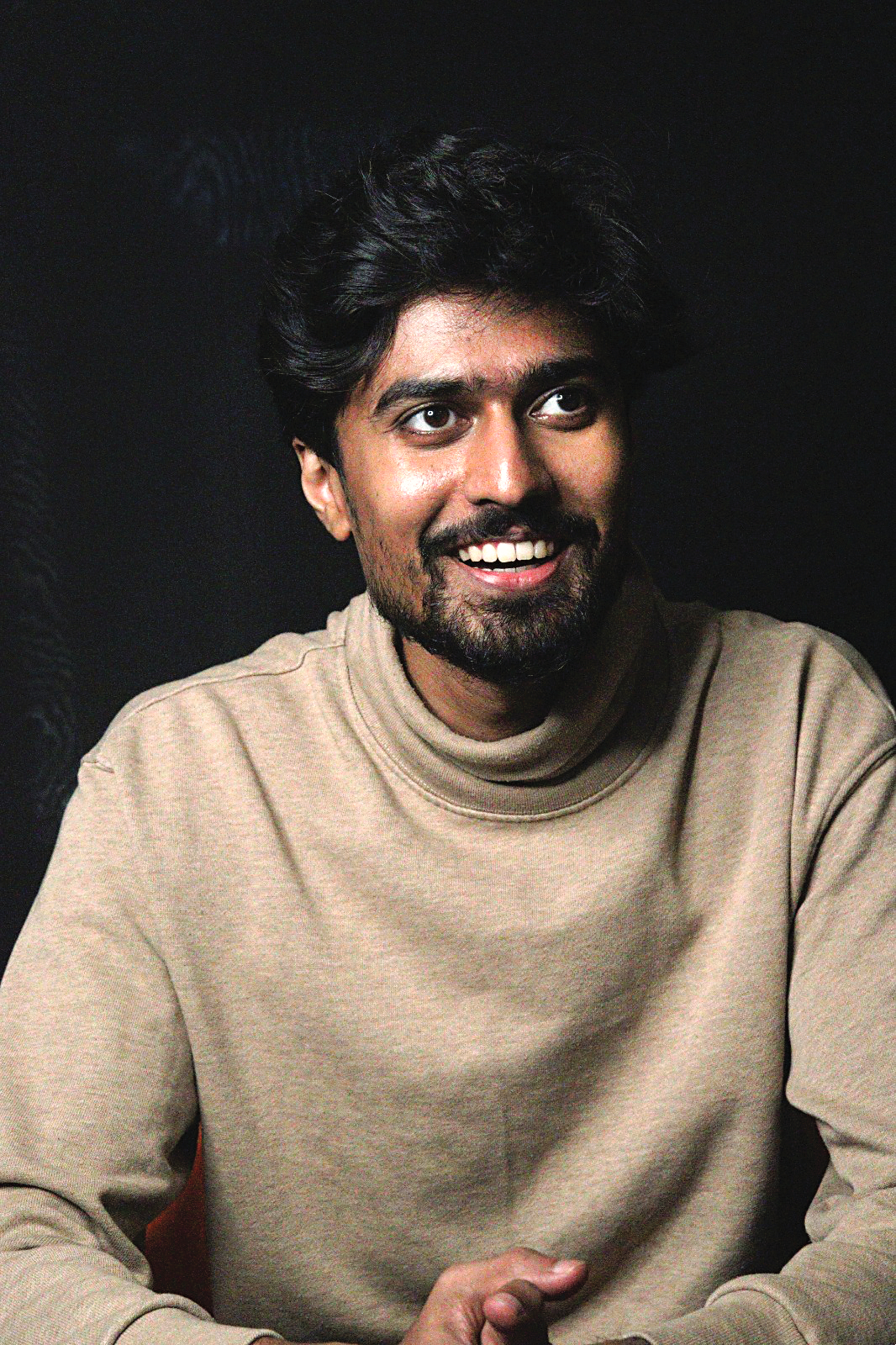Says director vaibhav mahadev on the brink of hisdebut release juni, about how the movie is poised to disrupt societal norms on mental disorders
- May 14, 2024
- Updated 5:49 pm
Those Battling Mental Health Aren’t Serial-killer
- Dhiraj MV
- December 19, 2023
- Sandalwood
A good film, to me, is one that lingers in my thoughts long after I’ve watched it, evoking emotions that resonate— whether familiar or otherwise
Vaibhav Mahadev, the director of the eagerly awaited debut film Juni, anticipates its release next month with bated breath. Scheduled for a New Year release, Juni is a romantic drama that aims to redefine love from a “different perspective”. Vaibhav envisions the film leaving an indelible mark by fostering a sense of acceptance among the masses. Viewing his creation as a contribution to mental health and societal narratives, the director highlights Juni’s potential success in reshaping perspectives, describing the narrative as a tale of “love and acceptance”. While applauding the performances of the cast, Pruthvi Ambaar and Rishika Naik, the alumni of Prague Film School, Vaibhav challenges the prevailing trend of star power in films. He firmly places the judgment of art in the hands of the audience, hailing them to be the ultimate “judge”. As the conversation shifts to a more personal tone, the engineer opens up about his initial fascination with cinema, his love for technology and the synergy among different art forms. In an intimate tête-à-tête with Our Bangalore, Vaibhav unveils undisclosed aspects, from his love-at-firstmeet with cinema to the intellectual depth of his female lead, Rishika’s probing questions, and more. The director’s candid revelations offer a glimpse into the heart and soul of Juni. Read on…

OB: First things first - why do you think people should watch Juni?
Vaibhav: Our film, Juni, challenges prevailing stereotypes surrounding mental illness perpetuated by the media. Rather than portraying individuals with mental health conditions as stereotypical serial killers or eccentric shut-ins in thrillers, we must delve into the depth of their experiences. Recognising a significant storytelling gap, we aim to depict common human experiences, such as falling in love, through the lens of the complexities faced by those with mental disorders. Juni is a labour of love, crafted with sincerity to entertain and, more importantly, to reshape perceptions hoping to touch and change at least one person’s outlook.
OB: Why did you name the film Juni?
Vaibhav: There are multiple reasons behind the choice of the title. Firstly, “Juni” a Scandinavian name, signifying “lovable”. Additionally, Juni also happens to be the name of the female lead character. Despite Partha (played by Pruthvi) being the protagonist, I opted for the title Juni because the film’s narrative orbits around her. The central themes of the movie— love and acceptance—are embodied in Juni’s character, making the title a fitting nugget of the essence of the story.
OB: Were Pruthvi and Rishika the first choices for the lead roles?
Vaibhav: The decision to cast Pruthvi as Partha was evident the moment, I witnessed his performances in Dia and Jothe Jotheyali. His innate charm and kindness perfectly aligned with the character of Partha. Pruthvi’s ability to infuse genuineness and ease into his portrayals was crucial for the authenticity of Partha’s character. Selecting the right actor for Juni, a character at the centre of the film’s plot, proved to be a significant challenge. I prioritised performance above all, and Rishika, who impressed us during the auditions, emerged as the ideal choice. Rishika stands out as one of the most talented and intellectually intuitive actresses I’ve met. Her approach and dedication were paramount, especially for a character grappling with mental illness. Rishika brought that depth to the character of Juni.
OB: What is your definition of a good film?
Vaibhav: A good film, to me, is one that lingers in my thoughts long after I’ve watched it, evoking emotions that resonate—whether familiar or otherwise. Be it joy, sadness, fear, or motivation, the film’s ability to stir genuine emotions is paramount. I consistently seek compelling narratives and an emotional impact that transcends the screen when evaluating a film’s quality
OB: How has cinema changed your outlook since childhood?
Vaibhav: From a young age, I was passionate about science and technology. Simultaneously, I explored the realm of performance arts, engaging in drama and playing the guitar for bands. Art offered a means of expression, allowing my voice to resonate. During my time at NITK (my engineering college), I stumbled upon the world of cinema—a medium that seamlessly blended my love for science and art. Post my engineering, I briefly worked as an engineer at Jindal Steel before making a complete shift to films and media. Initially, I took on the roles of an editor and motion graphics artiste, but slowly gravitated toward my true calling—filmmaking. Embracing this passion, I enrolled at the Prague Film School in the Czech Republic, where I delved into film direction and screenwriting. Returning to Bangalore, my mission became clear—to narrate grounded stories that resonate, told in a language that is deeply familiar to my own people.
OB: What’s your take on people not stepping out to watch Kanada films in theaters?
Vaibhav: My teachers instilled in me the belief that audiences owe filmmakers nothing, but filmmakers owe audiences a good film. Regardless of star power or circumstances, I trust that audiences will support good films and art. However, the landscape is evolving with home theaters, streaming platforms, AI, VR, and other technologies. Filmmakers must adapt, embrace change, and leverage emerging avenues. It’s our responsibility to captivate audiences and bring them to theaters. With Juni, we aim to achieve this through a distinctive storyline and remarkable performances, aiming to draw the masses back to the cinematic experience.

